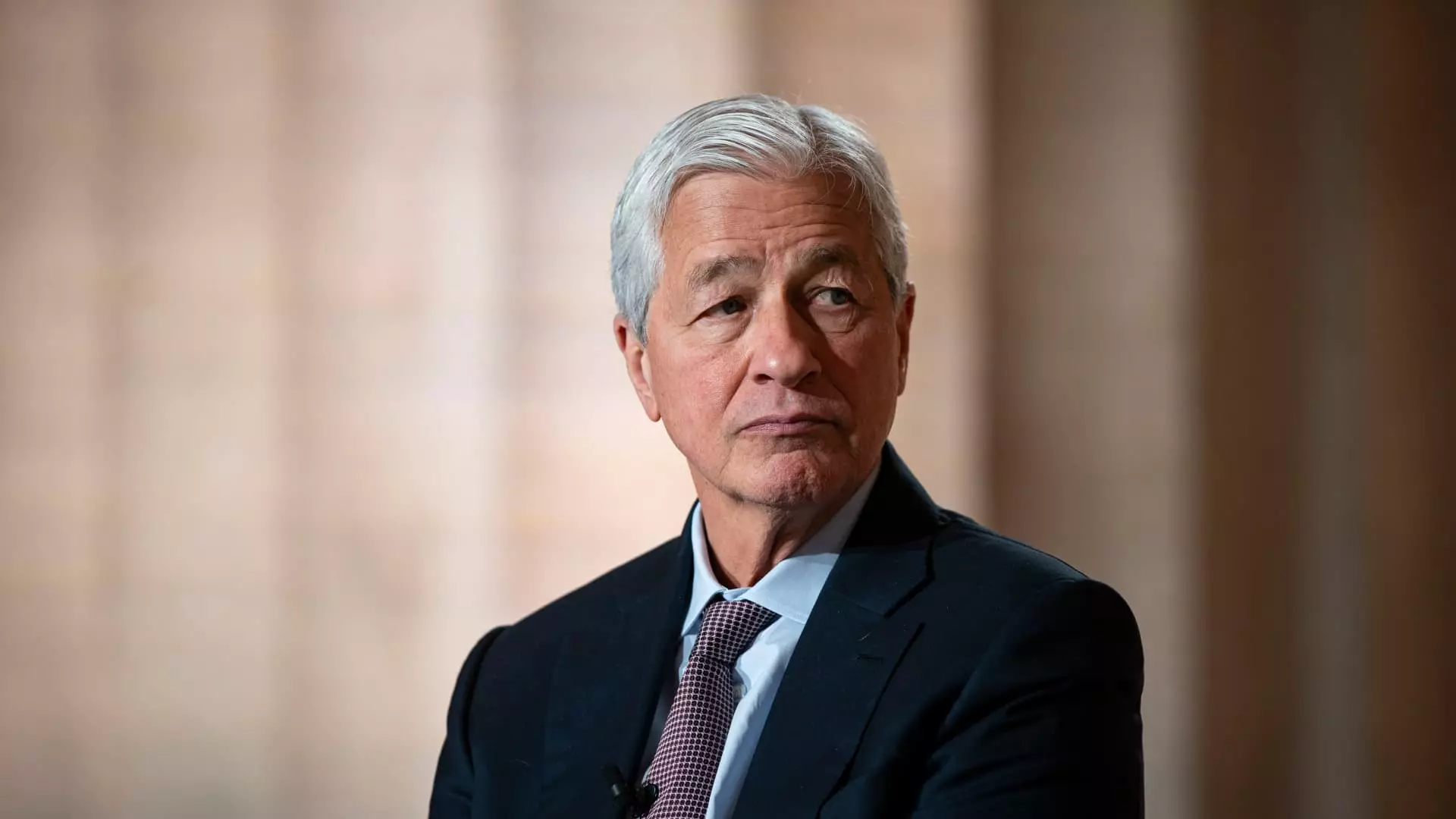In a revelation that sent ripples through the financial landscape, JPMorgan Chase CEO Jamie Dimon articulated a disconcerting perspective on the U.S. economy’s trajectory during a recent Fox Business interview. His prediction of a possible recession highlights underlying vulnerabilities exacerbated by President Trump’s tariff policies. This forecast, while partly rooted in market reaction, serves as an indicator that far beyond the stock tickers and economic formulas, a palpable sense of anxiety has gripped both investors and consumers alike.
Dimon’s assertion that “probably [a recession is] a likely outcome” is a reflection on the tumultuous climate engendered by the ongoing trade war with China. The stark symbolism of a 2000-point drop in the Dow Jones Industrial Average resonates beyond mere numbers; it encapsulates a collective fear of instability that extends into every corner of the economy. For ordinary Americans, the implications are dire: increasing anxieties over shrinking retirement savings and the broader economic fallout loom threateningly overhead.
Tariffs and Their Weighty Consequences
The recent announcement of an 84% tariff on U.S. goods by China, a dramatic escalation from already daunting rates, cannot be overlooked. This steep move acts as a sell signal, reinforcing Dimon’s narrative of market self-doubt. Markets are intricately tied to consumer behavior, and it’s clear that fear breeds conservatism. Many will restrict spending, pulling back on investments in homes, education, and services, actions that only deepen the cycle of economic contraction. This scenario is no longer hypothetical but an alarming reality that invites skepticism about sustained economic growth.
It’s crucial to examine how Dimon, once an advocate for tariffs, now issues cautionary advice to the administration: “Take a deep breath, negotiate some trade deals.” This pivot reflects a broader recognition within corporate America—a plea for diplomacy over aggression to foster stability. Spurts of optimism about trade narratives are crushed under the weight of rising uncertainty, calling into question the efficacy of Trump’s administration in navigating these treacherous waters.
The Market’s Hysteresis
Markets are often portrayed as rational entities, yet Dimon’s thoughtful commentary reveals their capacity to behave like a panicked herd. His observation that markets aren’t always right, but in certain instances, they reveal palpable truths, serves as a commentary on the current state of economic affairs. This skepticism toward market stability is a manifestation of broader systemic issues, drawing back to the compounding effects of constant uncertainty—the microeconomic ripple effects on individual businesses and consumer sentiment coalesce into something much larger.
The analysis proffered by JPMorgan economists, which projects a contraction in U.S. GDP, further corroborates Dimon’s unease. It is striking how such forecasts pivotally hinge on factors that are inherently unpredictable, yet driven by human behavior and sentiment. Financial powerhouses should derive insights from these trends, while policymakers must grapple with the complexities involved in averting a recession. As it stands, Dimon’s evocation of calm market approaches juxtaposed against the chaotic environment offers a stark depiction of a systemic crisis in waiting.
The Role of Leadership in Financial Equity
In addition to the economic landscape, Dimon also took the time to advocate for banking leadership stability, backing the confirmation of Fed Governor Michelle Bowman as vice chair for supervision. This recommendation underscores the philosophy that strong governance and oversight are quintessential in times of economic distress. It emphasizes a commitment to not just weather the storm, but to establish a robust framework for resilience.
As such, in these turbulent financial waters marked by tariffs and trade discord, responsible leadership emerges as a critical determinant of stability. The road might be fraught with challenges, but it is also rich with opportunities for innovation and strategic agreements that transcend mere business interests. Ultimately, the collective responsibility of leadership across sectors will determine how effectively the U.S. economy can navigate the looming specter of recession.
In a world where financial turbulence mirrors the uncertainty of geopolitical climates, Dimon’s insights serve as both a cautionary tale and a call to action for a pragmatic path forward in pursuit of economic resilience.


Leave a Reply